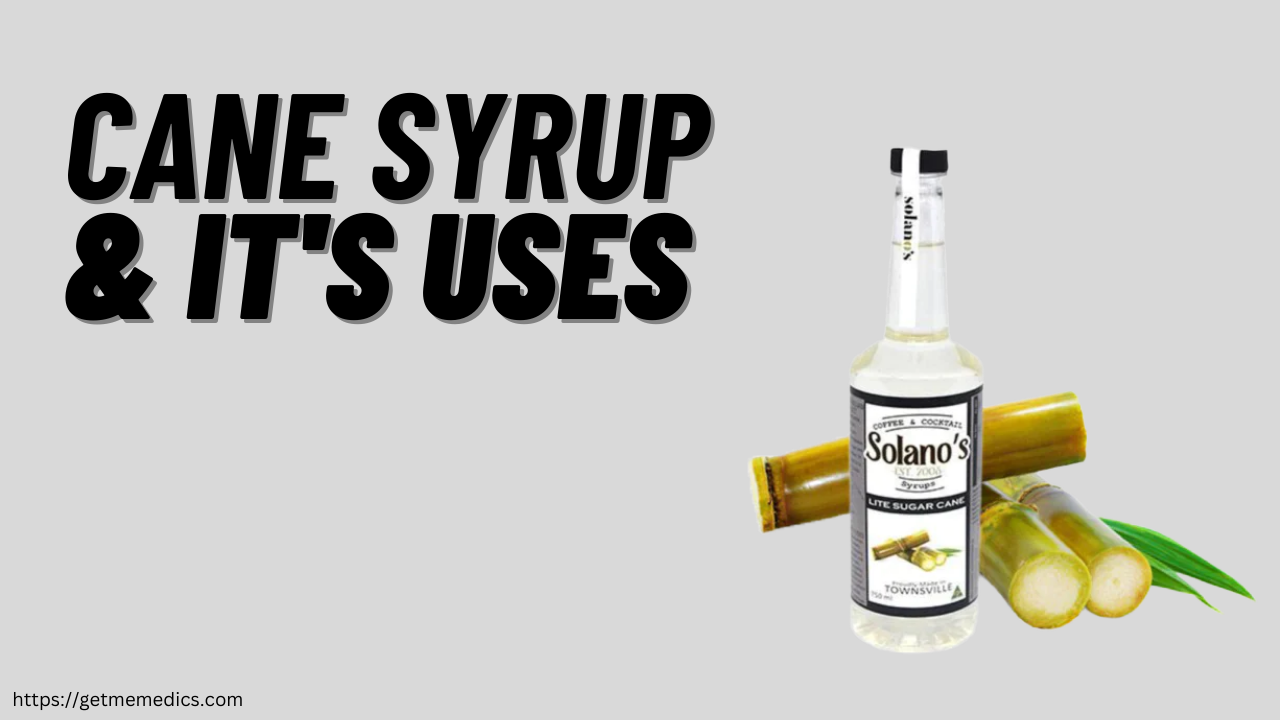In the world of natural sweeteners, cane syrup stands out for its unique flavor and versatility. Derived from sugar cane, this thick and rich syrup has been used for centuries as a sweetening agent and in traditional medicine practices. In this article, we will explore the uses, composition, side effects, precautions, dosage instructions, risks, warnings, interactions, and alternatives of cane syrup.
What is Cane Syrup?
Cane syrup is a natural sweetener extracted from sugar cane plants (Saccharum officinarum). The process involves crushing the sugar cane to extract its juice, which is then boiled to evaporate the water content, leaving behind a concentrated syrup. The result is a dark, viscous liquid with a distinct sugary taste.
Composition
Cane syrup mainly comprises sucrose, glucose, and fructose. Additionally, it contains essential vitamins and minerals, including iron, calcium, and potassium. Unlike refined sugar, cane syrup retains some of the nutrients present in sugar cane, making it a more wholesome sweetening option.
Uses of Cane Syrup
1. Culinary Applications
Cane syrup is widely used in the culinary world to sweeten an array of dishes and beverages. Its robust flavor enhances the taste of desserts, baked goods, and breakfast items like pancakes and waffles.
2. Medicinal Uses
Traditional medicine practices often incorporate cane syrup for its potential health benefits. It is believed to provide relief from sore throats, coughs, and colds. Some cultures also use it to alleviate digestive issues and as an energy-boosting tonic.

Side Effects
As with any sweetener, excessive consumption of cane syrup may have some side effects.
1. Weight Gain
Cane syrup is calorie-dense, and overconsumption may contribute to weight gain or obesity if not consumed in moderation.
2. Blood Sugar Spikes
Individuals with diabetes or insulin resistance should use cane syrup cautiously, as it can cause rapid spikes in blood sugar levels.
Precautions
To ensure safe consumption of cane syrup, consider the following precautions:
1. Moderation
Use cane syrup in moderation as part of a balanced diet to avoid potential health risks associated with excessive sugar intake.
2. Allergies
If you have known allergies to sugar cane or related products, consult a healthcare professional before using cane syrup.
How to Take?
Cane syrup can be taken in various ways, depending on its intended use.
1. Culinary Use
For culinary applications, cane syrup can be used as a direct substitute for other sweeteners in recipes.
2. Medicinal Use
When used for medicinal purposes, it is recommended to follow the advice of a qualified healthcare practitioner for appropriate dosage and administration.
Dosage Instructions
There are no standardized dosage instructions for cane syrup as it is primarily used as a sweetener in cooking. However, for medicinal use, it is best to consult a healthcare provider for personalized dosage guidance.
Risks and Warnings
While cane syrup is generally safe for consumption, certain risks and warnings should be considered.
1. Dental Health
As with any sweetener, cane syrup can contribute to tooth decay if proper dental hygiene practices are not followed.
2. Avoid Overconsumption
Overconsumption of cane syrup can lead to various health issues, including obesity, dental problems, and an increased risk of chronic diseases.
Interactions
Cane syrup may interact with certain medications or supplements.
1. Blood Sugar Medications
Individuals taking medications to manage blood sugar levels should monitor their intake of cane syrup to avoid interference with medication efficacy.
2. Herbal Supplements
Cane syrup may interact with certain herbal supplements, leading to adverse effects. It is advisable to seek medical advice before combining the two.
Alternatives
For those seeking alternatives to cane syrup, several natural sweeteners are available:
1. Honey
Honey is a natural sweetener with potential health benefits and a distinctive taste. It can be used in cooking and as a remedy for various health issues.
2. Maple Syrup
Maple syrup is another popular natural sweetener that complements both sweet and savory dishes.
You may also look for
Conclusion
Cane syrup is a versatile and flavorful sweetener with a long history of use. It offers culinary delights and potential health benefits. However, like any sweetener, it should be consumed in moderation. It is essential to be aware of its potential side effects and interactions with other substances. For those looking for alternatives, various natural sweeteners can meet their needs while adding unique flavors to their favorite dishes.
FAQs
Q1: Can cane syrup be used in baking?
Yes, cane syrup can be used as a sweetening agent in baking and cooking, adding a rich and distinct flavor to various dishes.
Q2: Is cane syrup suitable for individuals with diabetes?
Individuals with diabetes should use cane syrup cautiously due to its effect on blood sugar levels. It’s best to consult a healthcare provider for personalized advice.
Q3: How long does cane syrup last?
When stored in a cool, dry place, cane syrup can last for several months to a year.
Q4: Can cane syrup be used as a remedy for a sore throat?
Yes, some traditional medicine practices use cane syrup to alleviate sore throats and coughs.
Q5: Is cane syrup vegan-friendly?
Yes, cane syrup is derived from sugar cane plants and does not involve animal products, making it suitable for vegans.
